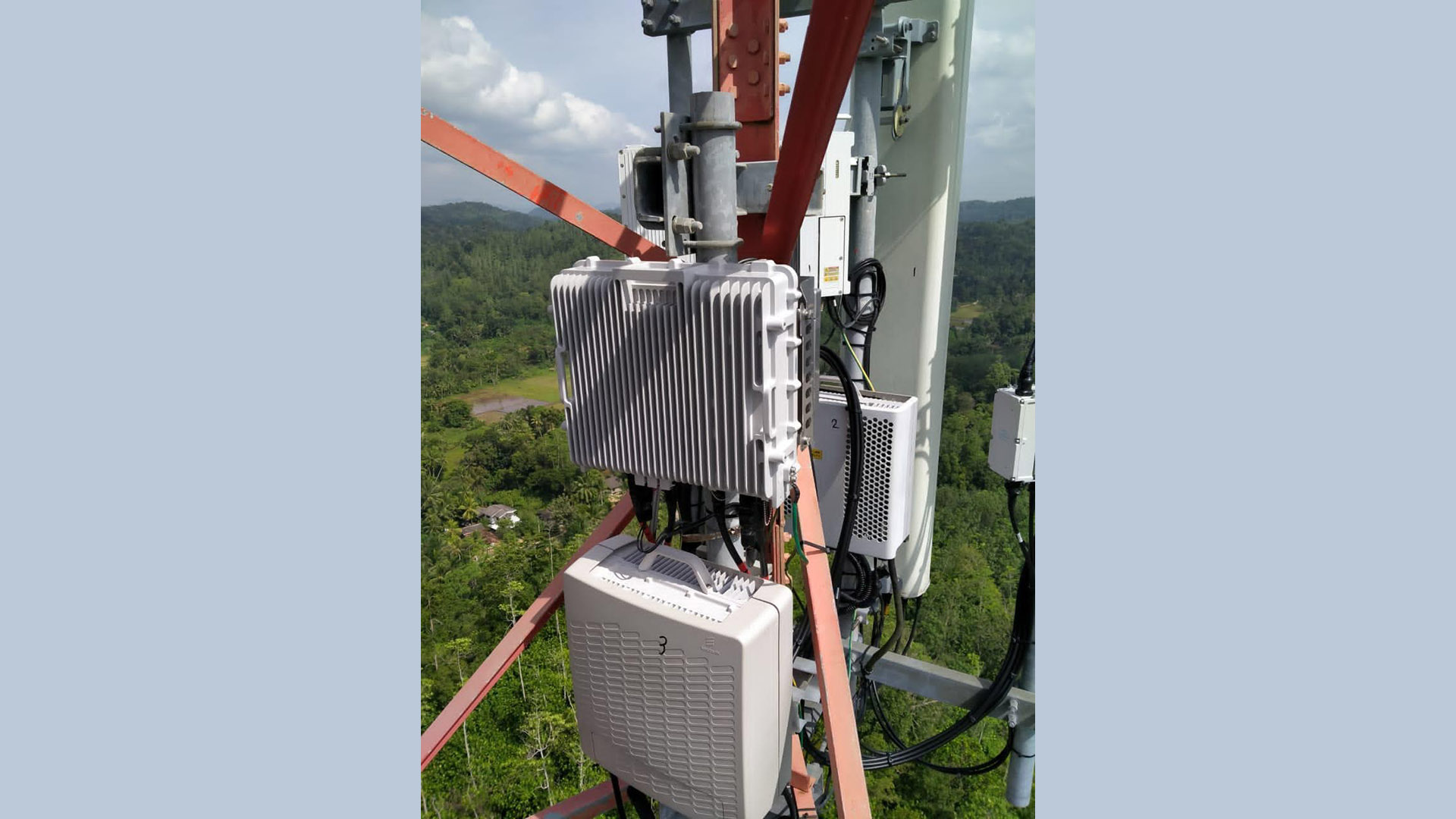- Together with mobile network operators Airtel and Vodafone, and technology partners ADI, Altiostar, Baicells, Flex, Mavenir, MTI, Parallel Wireless, and Xilinx, we are focused on building general-purpose radio access network (RAN) reference designs for 4G and 5G networks in the Open RAN ecosystem.
- This work is being done as part of the Evenstar program.
- The first Evenstar remote radio unit (RRU) product has now completed lab validation and will move on to field validation next.
- Additional RRU product SKUs are in development, and engineering work on the design of the distributed unit (DU) has begun.
As the demand for internet connectivity expands at a rapid pace, the infrastructure that supports it needs to grow and improve. That was particularly evident this year, as the COVID-19 pandemic drove people around the world online for school, work, and to stay connected. Connecting the world with this type of infrastructure requires us to work together as a community. As a founding member of the Telecom Infra Project (TIP), we work closely with others in the industry to design, build, and deploy flexible, efficient technologies.
As part of TIP’s OpenRAN Project Group, we are working to accelerate the path to commercial deployment of simplified, flexible, efficient RAN technologies. With a flexible platform based on standard interfaces, OpenRAN is designed to enable operators to source hardware components from different vendors to build their own solution. The approach is important for driving innovation and creating greater competition for hardware and software partners to more aggressively drive down total cost of ownership (TCO) for operators.
We announced earlier this year that we were launching the Evenstar program with industry partners. The first Evenstar RRU product has now completed lab validation, and we are excited to see the momentum build and accelerate OpenRAN adoption and deployments.

Evenstar is focused on building general-purpose RAN reference architecture for 4G and 5G networks in the OpenRAN ecosystem. By decoupling the RRU hardware, distributed unit (DU), and control unit (CU) software, which are traditionally sold as a package, mobile network operators have the ability to select best-of-breed components and the flexibility to deploy solutions from an increasing number of technology providers. The program aims to bring together a set of interested industry players to work toward a common goal of building a stable alternative infrastructure supply chain for RAN.
Evenstar program framework
The primary objective of the Evenstar program is to create a healthy, robust, and sustainable alternative to existing RAN infrastructure offerings. The project intends to provide a comprehensive platform for the product life cycle, from requirements to production, including testing, validation, and eventually procurement. With Evenstar, Facebook Connectivity is collaborating with an ecosystem of mobile operators, silicon providers, original equipment manufacturers, original design manufacturers, and contract manufacturers to build RAN hardware reference architecture and designs (for 4G and 5G networks) that are in line with 3GPP and O-RAN specifications. We started with RRU hardware and are now adding DU hardware as our next project, to accelerate OpenRAN adoption.

Together with mobile network operators Airtel and Vodafone, and technology partners ADI, Altiostar, Baicells, Flex, Mavenir, MTI, Parallel Wireless, and Xilinx, we are working on the Evenstar RRU product portfolio, which includes various SKUs of 4G and 5G RRU. Mavenir, in collaboration with MTI, Facebook, and Vodafone, recently led the lab validation of the first-generation Evenstar RAN product, demonstrating the Evenstar RRU in an OpenRAN lab setting interoperating with a DU solution over 7.2 interface. The next challenge is to validate its performance in the field, with live network nodes carrying commercial traffic.
With this lab validation complete, we expect the second-generation Evenstar RRU to be available in mid-2021. As we near completion of the RRU product portfolio, the DU project is now underway for both standard and merchant silicon–based configurations. We are collaborating with key silicon component providers to develop products that will further increase efficiencies around cost, size, and power for RAN components.
What’s next for Evenstar?
We expect field trials and scaled deployments for OpenRAN to significantly accelerate in 2021, with Evenstar playing an important role in helping reduce costs and increase flexibility and component-level efficiency for operators globally. Once the first components become available, we believe operators will see firsthand the benefits that Evenstar offers. Our hope is that early positive experiences will lead to greater commercial adoption of these initial products which will, in turn, help expand the network of OpenRAN suppliers. Through Evenstar, we intend to drive disruptive technology innovations to keep OpenRAN competitive in the long term and provide operators with more options.










